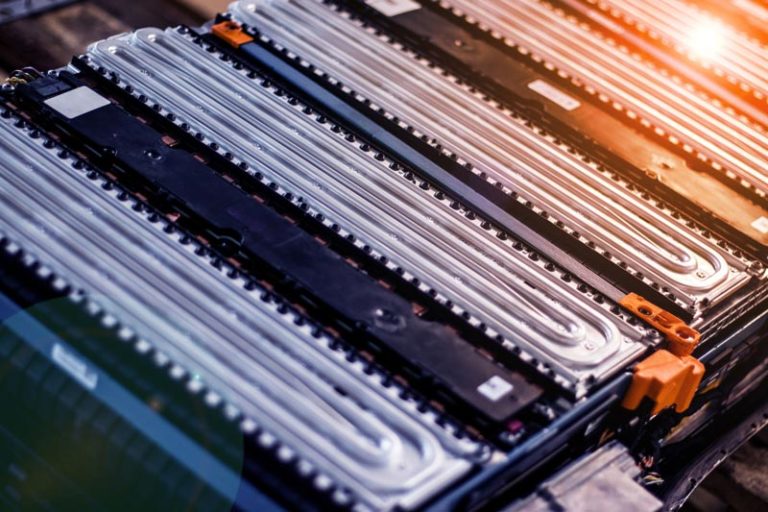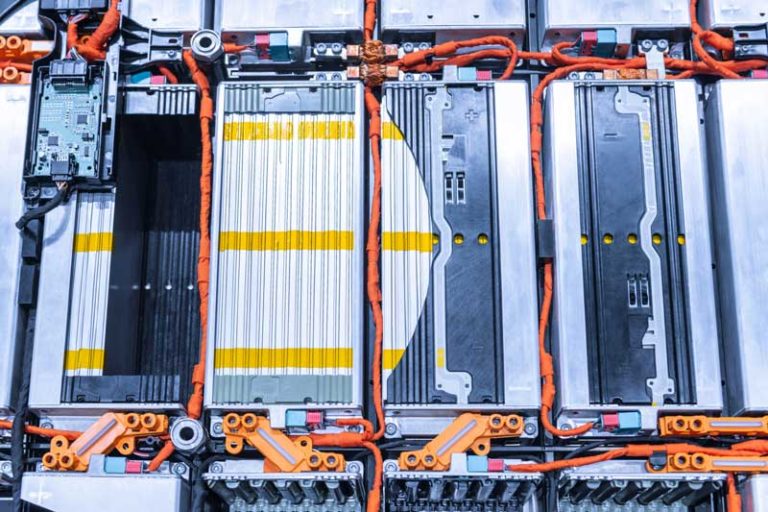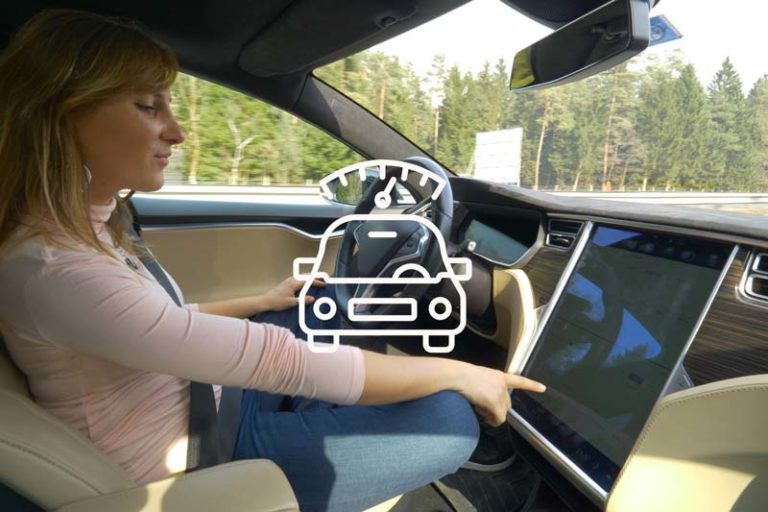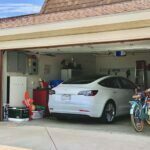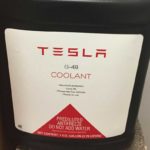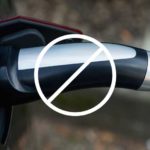Exceptional range and the establishment of charging stations all around the globe have put Tesla miles ahead of other electric car manufacturers. So, how many miles can you go in a Tesla?
Tesla claims all but the Model 3 Standard Range Plus have a range of over 300 miles (482.8 km), with the Model S Long Range maxing out at 405 miles (651.78 km). In truth, few people get close to a Tesla’s estimated range, given that the average American drives roughly 40 miles (64.37 km) per day.
I’ve taken the liberty of answering your questions about Tesla’s mileage and range. By the end of this article, you should better understand Tesla batteries and how far you expect them to take you.
- How Many Miles Can You Go in a Tesla?
- Do Miles Really Matter on a Tesla?
- How Accurate Are the Tesla Range Estimates?
- How Does Tesla Estimate Range?
- Tesla Estimated Range vs. Rated Range
- Is Tesla Standard Range Enough?
- How To Increase Your Tesla’s Range
- How Long Do Tesla Batteries Really Last?
- How Do Teslas Get So Much Range?
- Can You Upgrade the Tesla Range After Purchase?
- The Range of a Tesla on a Single Charge
- Tesla 2021 Models and Their Ranges
- Charging Your Tesla
- The Durability of Teslas
- The Next-Generation Battery From Tesla
How Many Miles Can You Go in a Tesla?
The number of miles you can go in a Tesla, according to EPA estimates, begins at 262 miles (421.65 km) in a fully charged Model 3 Standard Range Plus. After that, the most miles you can do is 405 miles (651.78 km) in a Model S Long Range. However, this varies depending on the model.
The miles estimates provided on Tesla’s website result from tests conducted by the Environmental Protection Agency (EPA). They are as follows:
| Tesla Model | Estimated Range |
| Model Y Long Range | 315 miles (506.94 km) |
| Model Y Performance | 303 miles (487.63 km) |
| Model X Long Range | 360 miles (579.36 km) |
| Model X Plaid | 340 miles (547.18 km) |
| Model 3 Long Range | 353 miles (568.10 km) |
| Model 3 Performance | 315 miles (506.94 km) |
| Model 3 Standard Range Plus | 262 miles (421.65 km) |
| Model S Long Range | 405 miles (651.78 km) |
| Model S Plaid | 396 miles (637.30 km) |
Do Miles Really Matter on a Tesla?
There’s plenty of information available about the relationship between mileage and the condition of an internal combustion engine.
Generally, the higher the mileage, the cheaper the car is as wear increases with the mileage. The same is partially true with Teslas.
Miles matter on a Tesla as the battery degrades with every mile and recharge. But what really matters on a Tesla is the battery level. The battery level shows how far the battery has degraded.
I’ve written a detailed article on this topic. Check it out! Do Miles Really Matter on a Tesla? Resale Values Compared
Teslas have fewer moving parts than an internal combustion engine, meaning fewer parts degrade as the odometer ticks on. The cost of repair of a Tesla compared to its ICE equivalent is much lower since there’s very little to repair or replace.
Checking the odometer won’t give you a clear indication of the condition of a used Tesla, but a battery test will. Some Tesla owners wear their batteries faster due to poor maintenance habits.
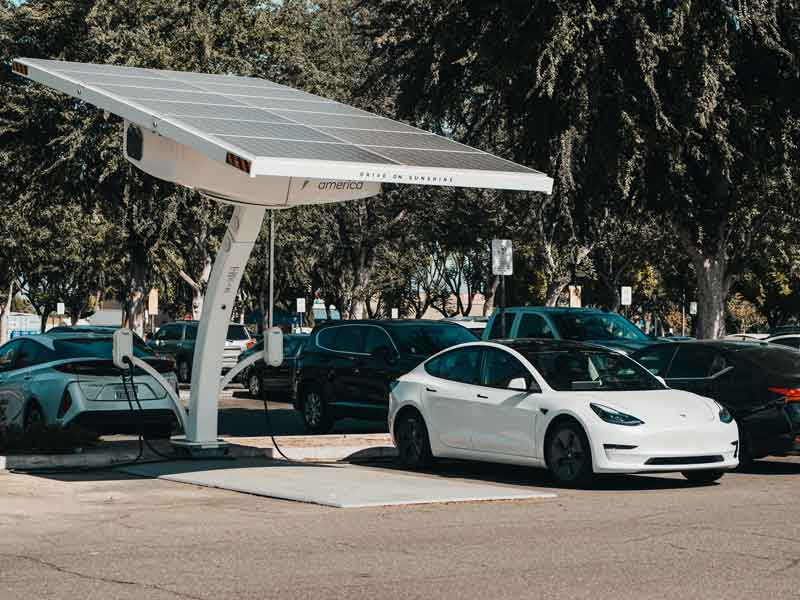
Tesla Batteries Should Last 300k-500k Miles
Elon Musk wrote that Tesla battery modules cost between $5,000 to $7,000. However, he also claims that a module should last anywhere between 300,000 to 500,000 miles (483,000 to 805,000 km).
Replacing a battery module that will last another 300,000 miles (483,000 km) for $5,000 isn’t that bad. Take note, however, that some battery modules won’t last that long due to poor maintenance.
That’s why your primary concern should be on battery level rather than mileage.
Mileage does matter when checking the validity of Tesla’s warranty. To qualify for the warranty, the battery level needs to be at a minimum of 70% (See again why battery level is crucial?).
Luckily, Tesla covers you up to a certain point:
- Tesla will cover the battery and drive unit of your Model S or Model X for eight years or 150,000 miles (241,000 km).
- The company will cover the same parts in your Model Y and Model 3 (Long Range and Performance) for eight years or 120,000 miles (193,000 km).
- Tesla covers similar parts in a model 3 Standard Range for eight years or 100,000 miles (161,000 km).
Tesla has cemented itself at the top of the electric vehicle ladder by offering a superior range to most of its competitors.
How Accurate Are the Tesla Range Estimates?
Tesla range estimates are pretty accurate, according to a test by Motortrend. Tesla’s onboard computer calculates your range depending on your driving patterns, then divides the juice in the batteries by factors such as speed and terrain and produces a range estimate.
This range estimate appears on the Energy App on your touchscreen.
The Motortrend team drove a 370-mile (595.46-km) Tesla Model S for 359 miles (577.75 km) non-stop, and the range stated that the Tesla could still do 41 miles (65.98 km).
The man driving claimed he was worried when taking a mountainous route to his destination. However, Tesla surprised him by taking into consideration terrain while calculating the range he had left.
He noted that the system got better at predicting the miles he had left as it learned more about his driving style.
How Does Tesla Estimate Range?
Tesla estimates range by dividing the battery level by external factors, including driving behavior and the environment. Therefore, it’s common for you to see the estimated range change as your driving style changes or as temperatures get warmer.
Driving in cold areas can also reduce the estimated range because cold batteries use up more energy. High speeds and city driving also reduce Tesla’s estimated range.
Tesla can increase the range of a vehicle using software updates. For example, in October 2020, Tesla updated the Model Y’s software and improved the car’s range by about 10 miles (16.09 km).
Tesla Estimated Range vs. Rated Range
The rated range of your Tesla is the range provided by Tesla as you purchase the car. Tesla gets this figure by dividing the battery level by a fixed efficiency value.
They set the efficiency value depending on tests performed by the EPA.
However, the rated range doesn’t factor in external elements while calculating, so there’s often a discrepancy between Tesla’s estimated range and the rated range.
As you start driving, external elements factor into the range calculations. For example, some drivers note that the rated range falls faster than the actual miles one is driving.
It’s because rated range calculations don’t consider external factors.
Tesla recommends that you refer to its software estimated range to get the most accurate range reading.
This YouTube video will give you an idea of how Teslas calculate range during a journey:
How Accurate Are Rated Range Estimates?
Tesla’s rated range estimates aren’t accurate, and the company makes it clear that the range presented on its website is the EPA estimate. It’s an estimate because one cannot accurately measure the range of an electric vehicle – or any car for that matter – due to external factors.
Furthermore, the EPA gives car manufacturers leeway to add to or subtract from the figure provided by EPA. Tesla generally chooses to add to the rated range figure provided by EPA.
Edmunds performed a test to determine how accurate Tesla rated ranges are, and the results were shocking: none of the four Tesla models they tested hit the rated range provided before the battery hit 0%.
Tesla contacted Edmunds stating Teslas remained with emergency juice in their system even when the batteries read zero. Edmund performed an experiment that confirmed Tesla’s assertion, but some cars still failed to reach their rated ranges.
Tesla’s assertion that the batteries remained with energy even when the dash says otherwise further proves that the rate ranges are inaccurate.
Furthermore, a test by Teslike found that Tesla often exaggerates its rated range.
| Tesla Model | EPA Estimate | Edmund Test Result |
| Model Y Performance | 291 miles (468.32 km) | 263 miles (423.26 km) |
| Model X Long Range | 328 miles (527.87 km) | 294 miles (473.15 km) |
| Model 3 Standard Range Plus | 250 miles (402.34 km) | 232 miles (373.37 km) |
| Model 3 Performance | 310 miles (498.90 km) | 256 miles (412 km) |
| Model S Performance | 326 miles (524.64 km) | 318 miles (511.77 km) |
Is Tesla Standard Range Enough?
The Tesla Standard Range Plus is the cheapest new Tesla available. It provides incredible value for money with decent acceleration, ample luggage space, and 262 miles (421.65 km) worth of range.
The Tesla Standard Range is enough for the average person as you’re unlikely to drive 262 miles (421.65 km) every day, and therefore, won’t need supercharging. Your Tesla will get all the juice it needs from overnight charging at home.
The Standard Range is cheaper than the other Model 3’s because it comes with a smaller battery. However, it has styling and range far superior to other cars in its price range.
Its interior is simple, and though adults won’t enjoy seating in the back, there’s enough room for five.
The Standard Range is enough for anyone driving short distances daily. It’ll serve you well as a daily commute to work and have enough juice left for errands.
The Model 3 Standard Range can also work for long journeys considering Tesla’s investment in superchargers. Superchargers allow for rapid recharging of your car’s batteries.
Frequent supercharging is discouraged, but it does come in handy during long journeys. Before you leave, confirm that your route has enough superchargers by consulting the car’s touchscreen.
How To Increase Your Tesla’s Range
The first way to increase your Tesla’s range is to reduce the impact of external factors on fuel energy consumption.
For example:
- Tire pressure should remain constant per Tesla’s recommendation.
- Remove any unnecessary cargo to reduce the weight carried by the Tesla.
- Aerodynamic drag increases your Tesla’s consumption, so close all windows while driving and set the suspension to low.
- Take off the roof racks when not in use.
- Cover aero wheels with aero wheel covers.
Your Tesla can help you increase the range if it has the regenerative braking option available. This saves energy created during braking and uses it for subsequent acceleration.
Therefore, the energy in your batteries remains intact. Remember to set regenerative braking to ‘Standard’ to get the best out of the system.
How Long Do Tesla Batteries Really Last?
Tesla batteries can last from 300k-500k miles (483k-805k km). However, Tesla batteries degrade over time at varying rates depending on maintenance. Tesla warranties cover up to 150k miles (241k km), but batteries can last longer. So the better you maintain your Tesla, the longer it will serve you.
According to Electrek, the data shows that battery degradation falls under 10% in most Teslas, with over 160,000 miles clocked. Such a Tesla will get to 300,000 miles (483,000 km) without needing a battery pack change.
Frequent supercharging presents one of the biggest threats to long battery life. However, Tesla batteries have also proven resilient to supercharging.
Tesloop, a shuttle service that only uses Teslas, replaced a Model S battery pack at 194,000 miles (312k km), with its degradation at 6%. The battery had degraded that slowly despite the tour company’s frequent supercharging.
You don’t need to supercharge your battery frequently, as home charging works just fine.
Getting your Tesla’s battery pack to last 500,000 miles (805,000 km) can theoretically happen, but it would take near-perfect maintenance and a fair bit of luck.
Reports suggest that Tesla is working on a battery to last 1M miles (1.61M km). It might have to, considering its plans to manufacture electric trucks.
How Do Teslas Get So Much Range?
No car manufacturer comes close to Tesla’s offering of range. In fact, Tesla became the first electric vehicle manufacturer to break the 400-mile (643.74 km) range mark.
Tesla gets so much range by manufacturing all parts itself. By doing so, it draws out every bit of performance from its components. Car manufacturers that rely on outside sources for parts rely on suppliers for upgrades. In contrast, Tesla can undertake year-round development on those parts.
It puts Tesla way ahead of the electric car development game.
Furthermore, Tesla is an electric car company that dedicates all its resources to electric vehicles. Other car manufacturers, however, have to divert funds and human resources to other departments.
Another reason why Tesla offers a superior range is that it sacrifices the longevity of the batteries to provide more miles.
Tesla battery packs work at full capacity from day one. It causes faster degradation but ensures that Teslas can go further than any other electric vehicle.
Can You Upgrade the Tesla Range After Purchase?
Tesla does allow for some upgrades after purchase. For instance, you can upgrade the charging system at a fee. However, you can’t upgrade a Tesla’s range after purchase. The range is linked to the battery and motor, making an upgrade impossible to do without building a new car.
The best way to upgrade the range is to buy a Tesla with a higher range. However, if you have the Model S Long Range, you’ll have to wait for Tesla to release a higher range version.
If you’d like to read more about this subject, then check out this detailed article that I wrote: Can You Upgrade the Range on a Tesla? Options Explained
The Range of a Tesla on a Single Charge
If you’re a Tesla owner, you know your car’s range is one of the most significant selling points. You can drive from one point to your destination and not stop to recharge. But what happens when that range is no longer enough?
According to Tesla’s website, the Model S has an EPA range of 405 miles (651.7 km) per charge. That means that, in theory, if you had a fully charged battery, you could drive from Los Angeles to San Francisco before recharging.
Driving range depends on several factors. If you’re driving at high speeds, your battery will drain faster, and those are variables that are difficult to predict ahead of time.
Driving in hilly terrain or through city streets where there are many stop lights will also significantly influence your range. Again, it’s hard to predict how much they’ll affect your specific trip.
Therefore the distance a Tesla can cover in one charge is dependent on the model, weather, driver’s habits, and other external factors.
So now you know how far your Tesla can go without recharging.
That’s it for the first section of this article. That was fun, but it’s time to move on.
Tesla 2021 Models and Their Ranges
The table below details the distance each Tesla model can cover on a full charge. The figures reflect average driving conditions; your actual mileage will vary according to your driving style, weather, and terrain.
| Tesla Model 2021 | Wheel Size | EPA Range Miles | EPA Range Kilometers | Battery Capacity kWh |
| Tesla Model 3 RWD | 18”/46 cm | 272 | 438 | 60 |
| Tesla Model 3 RWD | 19”/48 cm | 267 | 430 | 60 |
| Tesla Model 3 Long Range AWD | 18”/46 cm | 358 | 576 | 80 |
| Tesla Model 3 Long Range AWD | 19”/48 cm | 334 | 537 | 80 |
| Tesla Model 3 Performance AWD | 20”/51 cm | 315 | 507 | 80 |
| Tesla Model Y Long Range AW | 19”/48 cm | 330 | 531 | 80 |
| Tesla Model Y Long Range AWD | 20”/51 cm | 318 | 512 | 80 |
| Tesla Model Y Performance Long Range AWD | 21”/53 cm | 303 | 488 | 80 |
| Tesla Model X Long Range AWD | 20”/51 cm | 351 | 565 | 100 |
| Tesla Model X Long Range AWD | 22”/56 cm | 332 | 534 | 100 |
| Tesla Model X Plaid AWD | 20”/51 cm | 335 | 539 | 100 |
| Tesla Model X Plaid AWD | 22”/56 cm | 313 | 504 | 100 |
| Tesla Model S Long Range AWD | 19”/48 cm | 405 | 652 | 100 |
| Tesla Model S Long Range AWD | 21”/53 cm | 375 | 603 | 100 |
| Tesla Model S Plaid AWD | 19”/48 cm | 396 | 637 | 100 |
| Tesla Model S Plaid AWD | 21”/53 cm | 348 | 560 | 100 |
There you have it! You’ve seen how far the Tesla models can travel on a single charge; let’s find out how and where you can charge your vehicle.
And with that, I am off to the next section.
Charging Your Tesla
In the electric car market, Tesla has made a name for itself. Besides their cool vehicles, their charging infrastructure is top-notch.
You can charge your car anywhere with Tesla Wall Connectors, Destination Charging sites, and Superchargers.
The world is your charging station: yes, it’s true. Charging your vehicle is as easy as 1, 2, 3:
- Plug your car into a Tesla Wall Connector. This attaches directly to an electrical outlet at home. It’s a great way to get some juice while waiting for dinner or plug in and go to bed.
- Destination charging sites. Located throughout cities and at destinations like hotels, restaurants, and shopping centers, use these sites when traveling around town just by tapping onto a map. They show up once within range of your vehicle.
- The other option is Superchargers. These high-speed charging stations along major highways across the United States are very convenient for road trips out of town or anything long-distance.
Random Stat:
Tesla has over 20,000 supercharging stations worldwide. Nearly half are located in North America, and over half of those are in the US. California has the most, followed by Texas and Florida. As Tesla continues to roll out new models, the number of supercharging stations worldwide will increase significantly in the coming years.
The Durability of Teslas
When I first got my Tesla, I was like: “Yeah, this car is so cool. It’s sleek and makes me feel like the world is my oyster.” At the time, I didn’t think much about the cost of keeping the machine running. The only thing that mattered was that a beautiful control console would shine when I turned on the car.
But as time passed, something began nagging at me: what if this car stops working one day? What if suddenly this amazing car just won’t run anymore?
Am I ready for that?
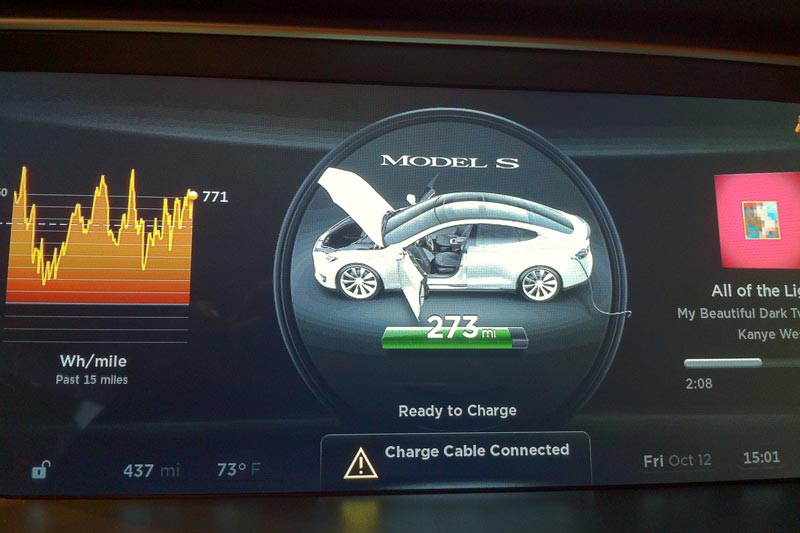
The Lifespan of a Tesla
In 2019, Elon Musk said that the Model 3’s drive unit and body could last a million miles. Currently, battery modules can last 300,000 to 500,000 miles (482,803 to 804,672 km) . Over the vehicle’s lifetime, the battery would need replacing once or twice.
While most people think a car will slow down and become less reliable as it ages, Tesla has proven that this isn’t necessarily the case. Their cars have a 1-million-mile (1,609,344-km) lifespan without losing any significant original performance.
The secret is in the batteries. The car will continue to perform relatively well as long as the battery is in good condition.
Did You Know:
Tesla is named after Nikola Tesla, a Serbian-American inventor who lived in the 19th century. He worked with alternating current and made many more contributions to the field of electrical engineering. Many of his inventions are still used today in cars and computers.
The Next-Generation Battery From Tesla
Tesla’s next-generation battery will be the first of its kind and change the EV manufacturing landscape.
Besides making green cars that are good for the environment, Tesla has been working on creating batteries that can power those same cars for a more extended range.
Here comes Tesla 4680 battery: a new battery cell in a bigger format. See what it’s all about in this video:
The 4680 cells are bigger and five times as powerful as current cells. Essentially, that enables Tesla to extend the range of its vehicles or use fewer batteries to maintain the same distance, thus lowering costs. Incorporating the batteries into the new Model Y will reduce complexity and weight while improving efficiency.
Tesla may not have the 4680 batteries in its vehicles for some time, but car prices might drop once they do, making Tesla EVs more affordable.
Tesla Fun Fact:
Tesla holds the record for fastest EV, with recorded top speed exceeding 250 mph. The Telsa Roadster 2020 takes just 1.9 seconds to go from 0–60 mph, a mere 4.2 seconds to reach 100mph, and 8.9 seconds to cover a quarter-mile stretch.
How Many Miles Every Tesla Model Can Go on a Full Charge
Elon Musk is a tad infamous for his statements, which are often perceived as borderline exaggerations. At best, one may describe some of his claims as hyper-optimistic but not always unfounded. For example, his tall claims about Tesla models’ longevity aren’t entirely misleading.
A Tesla Model S owner, Hansjorg von Gemmingen, has clocked 1 million miles (1,609,344 km) with a 2014 P85 model. However, he didn’t achieve this milestone with the original battery or the electric motor. He was on the fourth electric motor and the third battery in his Tesla Model S.
(Sources: Twitter: Hansjorg von Gemmingen, Auto Evolution: Tesla With the Most Mileage Reaches a New Milestone)
So, let’s talk about how many miles each Tesla model can go on a full charge before delving into the life of the batteries.
Tesla Model S
The Tesla Model S has 2 variants right now. Here’s their range difference:
| Tesla Model S Trim | Drivetrain | Electric Motor | Range |
| Model S (Base) | All Wheel Drive | Dual Motor | 375 to 405 miles |
| Model S Plaid | All Wheel Drive | Tri Motor | 348 to 396 miles |
Tesla’s official range for Model S is based on EPA’s assessment criteria.
(Source: Tesla: Model S)
Tesla Model X
The Tesla Model X has 2 variants right now. Here’s their range difference:
| Tesla Model X Trim | Drivetrain | Electric Motor | Range |
| Model X (Base) | All Wheel Drive | Dual Motor | 329 to 351 miles |
| Model X Plaid | All Wheel Drive | Tri Motor | 310 to 335 miles |
Tesla’s official range for Model X is based on EPA’s assessment criteria.
(Source: Tesla: Model X)
Tesla Model 3
The Tesla Model 3 has 3 variants right now. Here’s their range difference:
| Tesla Model 3 Trim | Drivetrain | Electric Motor | Range |
| Model 3 (Base) | Rear Wheel Drive | Single Motor | 267 to 272 miles |
| Model 3 Performance | All Wheel Drive | Dual Motor | 315 miles |
| Model 3 Long Range | All Wheel Drive | Dual Motor | 334 to 358 miles |
Tesla’s official range for Model 3 is based on EPA’s assessment criteria.
(Source: Tesla: Model 3)
Tesla Model Y
The Tesla Model Y has 2 variants right now. Here’s their range difference:
| Tesla Model Y Trim | Drivetrain | Electric Motor | Range |
| Model Y Performance | All Wheel Drive | Dual Motor | 303 miles |
| Model Y Long Range | All Wheel Drive | Dual Motor | 314 to 330 miles |
Tesla’s official range for Model Y is based on EPA’s assessment criteria.
(Source: Tesla: Model Y)
Check out these 20 great gift ideas for yourself or a Tesla fanboy.
Contact Us if you have any questions or queries.


